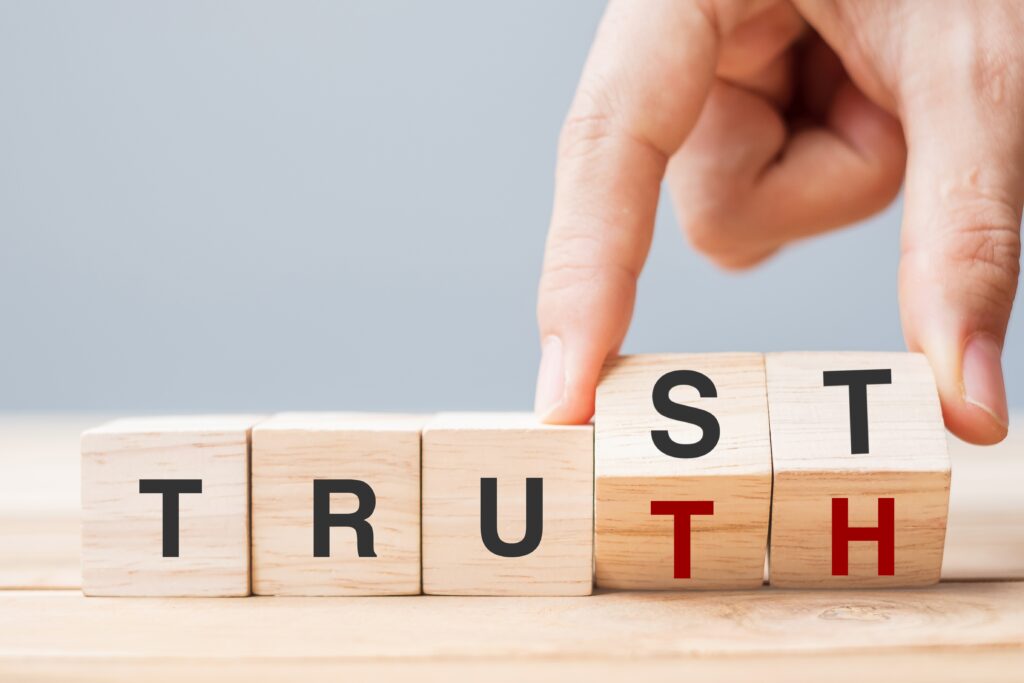Our Message
At 308 Consulting & Strategy Group Inc., we understand that a workplace encompasses various physical and virtual environments where employees carry out their duties, including offices, work sites, remote workplaces, and online platforms. Our team of experienced professionals is dedicated to conducting professional investigations that address allegations, concerns, or policy violations within these diverse workplace settings.
“At 308 Consulting & Strategy Group Inc., we firmly believe in procedural fairness, procedural justice, and respect for all parties involved in an investigation,” states Blaine Lucas, President & Chief Executive Officer. “Our commitment to upholding these principles ensures that every investigation we conduct is conducted with integrity, empathy, and the utmost regard for the well-being and rights of all individuals involved.”
Confidentiality is at the core of our investigation process. We prioritize creating a safe and supportive environment that encourages open and honest disclosure, safeguarding the privacy and dignity of all parties involved. By upholding strict confidentiality, we ensure the integrity of the investigation and enable us to reach fair and unbiased resolutions based on the merits of each case.
Our approach to workplace solutions is designed to minimize disruption while effectively addressing concerns. We recognize the significance of protecting the reputation and legal interests of individuals and organizations alike. By partnering with 308 Consulting & Strategy Group Inc., you can trust that our professional investigations will be conducted with the utmost professionalism and confidentiality.
Contact us today to learn more about how our comprehensive workplace solutions, including professional investigations, can support your organization in maintaining a healthy and productive work environment.

Let’s Talk About Out Services
308 Consulting & Strategy Group offers a comprehensive range of services tailored to meet the diverse needs of our clients. With expertise in workplace investigations, we specialize in uncovering and resolving complex issues to ensure fair and harmonious work environments. Our strategic solutions empower organizations to achieve their goals by providing actionable insights and innovative strategies. We also excel in emergency service development, assisting clients in preparing for and responding to critical situations with efficiency and effectiveness. Additionally, our training programs equip individuals and teams with the necessary skills and knowledge to thrive in their roles.
At 308 Consulting & Strategy Group, we are dedicated to delivering exceptional services that drive success and foster positive change for our valued clients. Our logo, featuring the chat icon, signifies our commitment to open communication and collaboration, as we genuinely want to engage and have meaningful conversations with you about your specific needs.
Investigative Practice
Workplace Investigations
At 308 Consulting & Strategy Group Inc., we offer a wide range of workplace solutions tailored to address various workplace issues and challenges.
Our services include, but are not limited to:
Harassment and Discrimination Investigations
Addressing allegations of harassment or discrimination based on protected characteristics, such as race, gender, religion, disability, sexual orientation, and age.
Workplace Violence Investigations
Focusing on incidents or concerns related to physical, verbal, or psychological harm inflicted on employees within the workplace.
Wrongdoing and Fraud Investigations:
Uncovering instances of misconduct, unethical behavior’s, fraudulent activities, or violations of laws and regulations within the workplace.
Policy Violations
Examining instances where employees have violated company policies, procedures, or guidelines and assessing the impact and appropriate corrective actions.
Duty to Accommodate
Examining instances where employees have violated company policies, procedures, or guidelines and assessing the impact and appropriate corrective actions.
Reputational Harm
Examination allegation(s) of inappropriate activity on social media platforms that has the potential to cause reputation harm to a business, program or service.
Workplace Investigations
Employee Misconduct
Addressing allegations or concerns related to employee misconduct, including breaches of company policies, code of conduct violations, insubordination, or dishonesty.
Whistleblower Investigations
Investigating reports or concerns from employees or external individuals regarding illegal or unethical practices within the organization.
Bullying & Intimidation
Investigating reports or concerns from employees or external individuals regarding illegal or unethical practices within the organization.
Workplace Investigations
Our experienced investigators adhere to the highest professional standards, ensuring impartiality, confidentiality, and procedural fairness throughout the investigative process.
We work closely with clients to understand their unique needs and provide objective and legally compliant outcomes.
Poisoned Work Environment
Investigating situations with a pervasive negative atmosphere or toxic culture in the workplace that adversely affects employee well-being and productivity.
Sexual Harassment
Specifically focusing on allegations of unwanted sexual advances, comments, or behaviour that creates a hostile or intimidating work environment.
Reprisal & Breach of Authority
Uncovering instances of unethical behaviour, violations of company policies, or other forms of wrongdoing not covered in the categories as mentioned abov
Contact Us
“Empower Your Business, Protect Your People”
We are here to discuss how our workplace solutions can help your business.
Understanding the Investigative Process
What is a Workplace Investigation?
A workplace investigation is a systematic and impartial process conducted to gather relevant facts and evidence in response to complaints, concerns, or incidents within the workplace. These investigations are essential for promoting fairness, addressing workplace issues, and ensuring compliance with applicable Canadian federal, provincial, and territorial regulations and legislation.

Investigative Terms
Key Definitions
Our website features a dedicated section providing key investigative definitions to enhance understanding and clarity. Definitions of important terms such as respondent, complaint, complainant, evidence, whistleblower, and disposition are outlined, ensuring that visitors have a solid grasp of these fundamental concepts within the investigative process.

A complaint refers to an official allegation or concern raised by an employee(s) or a third party or parties regarding conduct, behaviour, or incidents that may contravene workplace policies, laws, or regulations.
In the context of an investigation, a complainant refers to an individual or entity that files a formal complaint or report regarding alleged misconduct, wrongdoing, or violation of policies or regulations. The complainant plays a crucial role in initiating the investigative process by bringing forth the concerns or grievances, serving as the source of information that prompts the investigation to be conducted.
A whistleblower is an individual who exposes or reports information about illegal, unethical, or wrongful activities within an organization. This information can be related to allegations of misconduct, fraud, corruption, safety violations, or other forms of wrongdoing. Whistleblowers often come forward with their concerns to protect the public interest, promote transparency, and hold individuals or organizations accountable for their actions.
A respondent refers to the individual or entity against whom a complaint or allegation has been made. The respondent is the subject of the investigation and is provided with the opportunity to respond, provide their side of the story, and present any evidence or information relevant to the allegations being investigated.
A workplace investigation witness is an individual who possesses relevant information or firsthand knowledge about an incident or issue being investigated in the workplace. They may have observed or been involved in the events under investigation and are called upon to provide testimony or share their perspective to aid in uncovering the truth or establishing facts during the investigative process. The witness’s testimony can play a crucial role in determining the outcome of the investigation and may be used to corroborate or refute other evidence or statements.
Can a Witness Become a Complainant or a Respondent?
In a workplace investigation, it is possible for a witness to transition into the role of a complainant or a respondent, depending on the circumstances and the evidence that emerges during the investigation. Here are definitions of both scenarios:
- Witness turned Complainant: A witness in a workplace investigation may become a complainant if they come forward with their own allegations of misconduct or violation after initially providing testimony or information as a witness. This can happen when the witness realizes they have been directly affected by the alleged misconduct or when they become aware of additional relevant information that implicates themselves or others. By stepping forward as a complainant, they initiate their own complaint and become a party to the investigation, seeking resolution or redress for the alleged wrongdoing they have experienced.
- Witness turned Respondent: Similarly, a witness in a workplace investigation may become a respondent if the evidence or information gathered during the investigation suggests their involvement in the alleged misconduct or violation. As the investigation progresses, it may reveal that the witness has played a role in the incident under scrutiny, either as a participant or a contributing factor. In such cases, the witness’s status shifts from an observer to a subject of investigation. They are then provided with an opportunity to respond to the allegations and provide their own account of events, addressing the claims made against them.
It is important to note that whether a witness becomes a complainant or a respondent depends on the specific circumstances of the investigation and the evidence uncovered. The transition is determined by the nature of their involvement in the incident and their personal connection to the allegations.
Workplace investigative evidence refers to the information, documents, records, testimonies, and tangible materials collected during a workplace investigation. It includes any relevant facts or proof that supports or contradicts allegations, helps establish the truth, and enables the investigator to make informed decisions. This evidence is crucial for determining the accuracy of claims, assessing compliance with laws and policies, and reaching fair resolutions in workplace investigations.
Workplace investigations are systematic and objective processes conducted by organizations to address allegations or concerns related to misconduct, policy violations, or other issues within the workplace. These investigations aim to gather relevant information, examine evidence, and make informed determinations regarding the veracity of the allegations and any necessary remedial actions.
Confidentiality is essential in workplace investigations for several important reasons:
- Protecting Privacy: Confidentiality safeguards the privacy and dignity of all parties involved in the investigation. It allows individuals to share sensitive information without fear of reprisal, retaliation, or damage to their reputation. By maintaining confidentiality, investigators create an environment that encourages open and honest disclosure, ensuring that individuals feel safe to provide accurate and complete information.
- Encouraging Cooperation: Confidentiality encourages cooperation from witnesses, complainants, and respondents by assuring them that their participation will be handled discreetly. When individuals feel that their identities and statements will be protected, they are more likely to come forward, share their experiences, and provide relevant information that can help in reaching a fair and unbiased resolution.
- Preserving Integrity of the Process: Confidentiality helps to preserve the integrity of the investigation process. It prevents the unauthorized disclosure of sensitive information, ensuring that the facts and evidence are not influenced or compromised by external parties. By maintaining strict confidentiality, investigators can conduct thorough and unbiased inquiries, making decisions based on the merits of the case rather than external pressures or influences.
- Minimizing Workplace Disruption: Confidentiality also helps to minimize workplace disruption during the investigation. By keeping details confidential, the investigation’s impact on other employees and the overall work environment is mitigated. It allows for a more efficient and focused investigation process, minimizing rumors, speculation, and unnecessary distractions that could negatively affect productivity or employee morale.
- Protecting Legal and Reputational Interests: Confidentiality is crucial for protecting the legal and reputational interests of all parties involved. It helps prevent premature or inaccurate disclosures that could harm the reputation of individuals or the organization. By maintaining confidentiality until the investigation is concluded, the organization can ensure that all relevant facts are considered and that any necessary actions are taken based on a thorough and fair evaluation of the evidence.
In summary, confidentiality in workplace investigations is essential to create a safe and supportive environment for individuals to come forward, provide accurate information, and ensure the integrity and fairness of the investigative process. It protects the privacy, cooperation, and legal interests of all parties involved, fostering trust and promoting a healthy and respectful work environment.
What is the Balance of Probabilities Standard??
The balance of probabilities, in the context of a workplace investigation, refers to the standard of proof used to assess the validity or truthfulness of allegations or claims made during the investigation process. It is a legal principle that requires the decision-maker or investigator to determine whether it is more likely than not that the events or circumstances being alleged actually occurred.
Unlike the higher standard of proof required in criminal cases, which is “beyond a reasonable doubt,” the balance of probabilities standard is a lower threshold. It requires the investigator to weigh the available evidence and assess whether it tips the scales in favor of one version of events over another. In other words, the decision-maker must consider whether the evidence supports the alleged misconduct or violation more than it supports an alternative explanation or denial.
When conducting a workplace investigation, the investigator examines the evidence and testimony presented by witnesses, documents, and any other relevant information. They weigh the credibility, consistency, and reliability of the evidence and make a determination based on the preponderance or greater weight of evidence. If it is more probable than not that the alleged misconduct or violation occurred, the balance of probabilities standard suggests that a finding can be made in favor of the party presenting the stronger case.
Ultimately, the balance of probabilities standard is used to guide the decision-making process in workplace investigations, ensuring a fair and reasonable assessment of the available evidence while recognizing that absolute certainty may not be attainable.
What is an Investigative Disposition?
The disposition refers to the outcome or conclusion reached at the end of a workplace investigation. It outlines the findings, any corrective actions taken, and the resolution of the matter.
Investigative Stages
A systemic process for workplace investigations is crucial in ensuring fairness, transparency, and accountability within organizations. It provides a structured framework that allows for consistent handling of workplace complaints, mitigating the risk of bias or favoritism.
By implementing a systematic approach, organizations can demonstrate their commitment to upholding the principles of procedural justice and fairness, which are essential for maintaining trust and fostering a healthy work environment.
1.
Planning & Preparation
Planning and Preparation: This initial stage involves gathering relevant information, reviewing policies and procedures, identifying key individuals involved, and developing an investigation plan tailored to the specific circumstances.
Information Gathering
The investigator collects facts, evidence, and documentation through interviews, document reviews, and any necessary forensic analysis. Confidentiality and privacy considerations are rigorously upheld throughout this process
2.
3.
Analysis & Evaluation
The collected information is thoroughly analyzed, and the credibility and reliability of the evidence are assessed. This stage includes identifying patterns, inconsistencies and corroborating evidence to form an impartial and evidence-based conclusion.
Findings & Reporting
The investigator presents a detailed report outlining the findings of the investigation, including a summary of the evidence, the assessment of credibility, and a determination of whether the allegations are substantiated or unsubstantiated. The report may also include recommendations for corrective actions and measures to prevent similar issues in the future.
4.
5.
Resolution & Follow-Up
Once the investigation is complete, appropriate actions are taken to address the findings and resolve the matter. The resolution may involve disciplinary measures, training programs, policy revisions, or other interventions to foster a healthy and inclusive workplace environment.
Unveiling Evidence in Investigations
What is Evidence?
In a workplace investigation, evidence refers to any information, materials, or documentation relevant to the matter being investigated. It helps establish facts, corroborate statements, and provide a basis for making informed decisions.
Here are some examples of materials that can be essential pieces of evidence during a workplace investigation:
Testimonies from witnesses who observed or have information about the events in question can provide firsthand accounts and support the credibility of statements made during the investigation.
Written statements from witnesses, complainants, respondents, or other individuals involved in the investigation can provide firsthand accounts and perspectives on the events.
Relevant documents such as contracts, policies, procedures, incident reports, disciplinary records, performance evaluations, or medical records can support the investigation by providing contextual information or factual background.
Network Audits and System Logs
Network audits and system logs can reveal information about online activities, data access, or system usage, which may be pertinent to the investigation.
Email exchanges, digital communications, and written correspondence can provide crucial evidence of conversations, interactions, or incidents relevant to the investigation.
Proximity Card/Security Access Records
Access records from proximity cards, security systems, or keycards can help establish the presence or absence of individuals at specific locations and times.
Video recordings or surveillance footage from cameras within the workplace can serve as visual evidence to support or refute claims, providing a tangible record of events.
Photographs or images documenting physical conditions, damages, injuries, or other visual aspects of the investigation can serve as valuable evidence.
Any physical objects, equipment, samples, or materials relevant to the investigation can be considered as evidence, such as faulty machinery, damaged property, or product samples.
Collecting & Preserving Evidence
Collecting, preserving, and analyzing evidence carefully while adhering to legal and privacy requirements is essential during a workplace investigation. Skilled investigators employ a systematic and unbiased approach to evaluating and weighing the evidence to arrive at fair and informed conclusions.
Note: The specific types of evidence gathered during a workplace investigation may vary depending on the nature of the case, applicable laws and regulations, and the specific circumstances surrounding the investigation.


Testimonials
Municipal Mayor
“Mr. Lucas demonstrated exceptional people leadership and project management skills. Mr. Lucas has a
unique ability to find innovative solutions to complex operational and administrative challenges.”
“Mr. Lucas led a team of dedicated professionals that secured funding contributions from the federal
and provincial governments of $667M, which represented a 232% increase over the previous eight
years. Mr. Lucas is an advocate for local government, municipal services, and business modernization”
Elected Official
Senior Executive
“Proved capable in the face of serious allegations and a politically charged investigation”
Trust Our Statistics
Numbers Speak For Themselves!
1
Investigations Conducted
1
Investigative Hours
1
+
Years of Experience